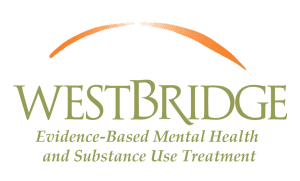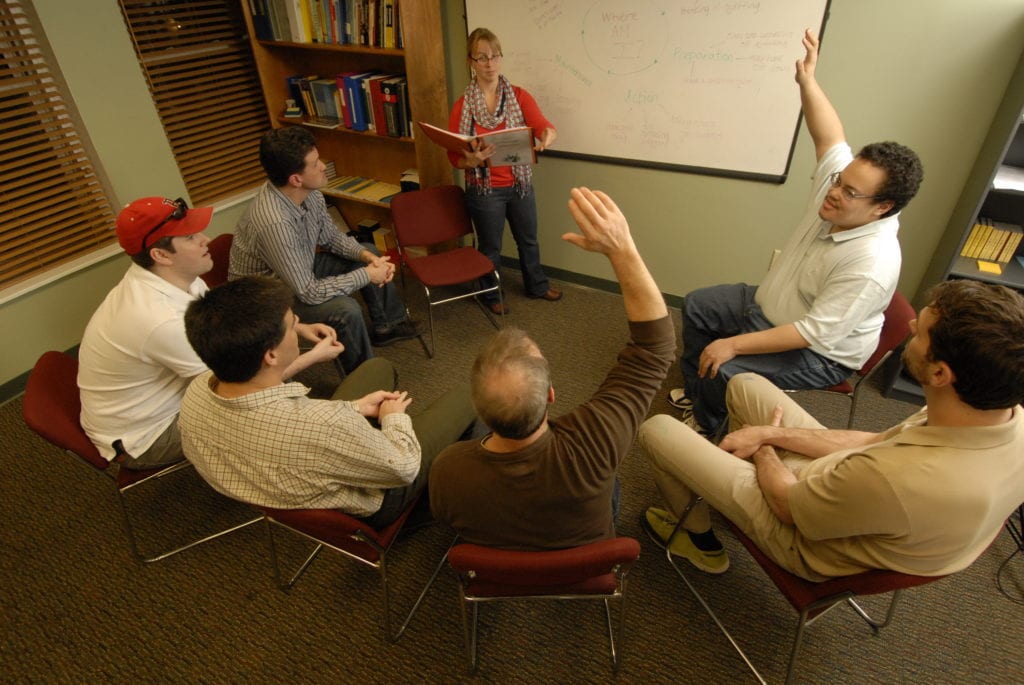Recovery is a way of life that embraces emotional, physical, mental, and spiritual health. There are many opportunities for our treatment team to help individuals and their families begin the process of recovery. Wellness-based activities are integrated throughout all of our programs to introduce and foster the development of healthy, positive skills and lifestyle habits.
Our participants:
- Receive support and guidance in making nutritious diet choices
- Practice mindfulness-based activities such as yoga and meditation
- Enjoy well-balanced meals
- Establish a healthy sleep cycle
- Participate in regular exercise
Living in a supportive substance-free environment enables our participants to reassess their current lifestyle and make decisions that will promote health and wellness.
With a customized set of skills and tools in place, men feel more hopeful and confident in their recovery.
Regular Exercise
Research shows that regular exercise helps to treat and reduce symptoms of mental illness and substance use disorders.
At WestBridge, each participant is encouraged to engage in some form of exercise, whether through trips to the local YMCA (often with a WestBridge Mentor), participation in our regular basketball and volleyball games, or activity on their own outside of our program’s structure.
Healthy Nutrition
In both our inpatient and outpatient programs, participants are instructed  and supported in maintaining healthy eating habits which promote improved energy levels and overall health and recovery.
and supported in maintaining healthy eating habits which promote improved energy levels and overall health and recovery.
Each of our men’s residences employs a full-time chef who prepares healthy and delicious meals for participants on a daily basis. Our chefs are committed to using natural ingredients, all of which are low in fat and sugars. In addition, men in both our inpatient and outpatient programs are encouraged to participate in our weekly Culinary Wellness group therapy program, during which they learn about healthy ingredients, cooking techniques, and recipes.
Sleep Hygiene
The human body needs sleep to restore itself and prepare for the next day, but unhealthy sleep habits are often developed as a result of substance misuse and untreated symptoms of mental illness.
Sleep disturbances can contribute to treatment resistance, psychiatric symptoms, cravings and drug relapse, ineffectiveness in daily functioning, weight gain, diabetes, obesity, low immune system functioning, hypertension, and cardiovascular disease. Chronic sleep challenges can also lead to a shortened life.
Upon admission, each participant receives a sleep assessment and a comprehensive sleep hygiene plan that will enable him to better access the benefits of treatment. By assessing sleep patterns and history, daily diet and exercise, caffeine intake, drug and alcohol use, and other related factors, WestBridge helps participants to overcome obstacles to sleep and significantly improve their lifestyles.
WestBridge’s clinically trained staff assist participants with incorporating new habits and activities into their nightly routines, working with them after-hours in their homes to make these changes work for each individual.
Nicotine Cessation
Quitting smoking improves one’s health in multiple ways. Studies have shown that, over a short period of time after quitting, individuals can lower their blood pressure, improve their circulation and lung function, and reduce their risk of stroke and heart disease.
WestBridge assists each man with effective quitting strategies and provides support and health tips in a group setting. Residential participants are supported in using Nicotine Replacement Therapies during their time at WestBridge. Therapies include the nicotine patch, nicotine gum, and/or nicotine lozenges. In addition, participants have the option to begin a structured smoking cessation plan, enabling each man to achieve all possible health benefits as they transition away from smoking.
Mindfulness
Mindfulness is, generally speaking, characterized as the intentional act of focusing one’s attention on being present with the emotions, thoughts, and physical feelings that one experiences from moment to moment.
Practicing mindfulness has been demonstrated to help reduce anxiety and stress, improve self-control, assist in coping with urges to use substances, and prevent relapse. Understanding one’s own emotions can decrease self-blame, increase positivity, reduce the numbers of medications needed, and accelerate recovery.
Biofeedback Therapy
WestBridge is pleased to be offering biofeedback therapy to participants. Biofeedback therapy, offered through the use of a Biosound Bed, offers participants the chance to reach a theta level meditative state through the vibroacoustic meditations and programming. The programs offered through the Biosound Bed include:

- Guided Imagery and Affirmations
- Music and Massage Therapy
- Craving Assistance
- Chakra Alignment
- Solfeggio Meditations: harmonious tone meditation according to the Solfeggio musical scale
- Drum Therapy
- Nature Sound
Participants’ heart rate variability is monitored through a finger pulse sensor in order to regulate heart rhythm and assist meditation as they work through the process. Biofeedback therapy is shown to improve an individual’s overall health, relationships, and quality of life. Biosound Bed therapy sessions vary in length from 30 min to 1 hour, depending on the program and the man’s progress. For more information visit: http://biosoundhealing.com
Other Recreational Activities
In addition to the more structured components of our wellness program, WestBridge offers regular meditation and discussion groups, yoga, and other recreational activities based on the interests of our current participants.







